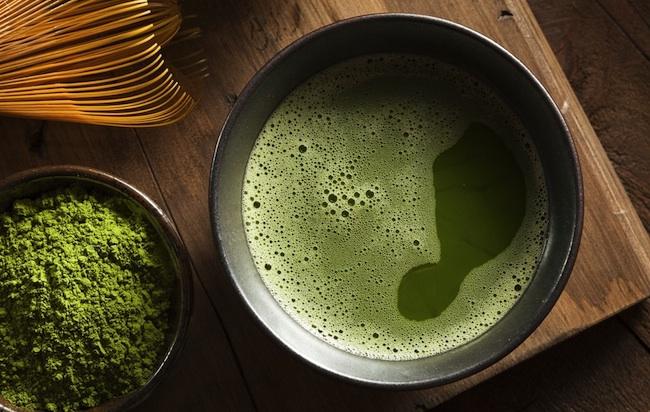If you’ve ever worried that you’re a slave to Starbucks, you’ve likely considered going green.
And why not? Research suggests that—thanks to good-for-you antioxidants called catechins—green tea boasts a slew of health benefits. It’s linked to everything from an improved working memory to cancer prevention. Plus, there are fun ways to use it (like in smoothies, rice, and chocolate!).
Unfortunately, you’ve likely also heard about the downsides of the green stuff. Take the 16-year-old girl from the U.K. who was hospitalized for severe liver damage after drinking three cups a day of an herbal Chinese tea she ordered online.
Worrisome? The thing is, it’s likely that those cups were highly concentrated—and for the most part, that’s where any health risks associated with green tea stem from: overdoing it on supplements or drinks marketed to aid weight loss (like the ones the teen bought). Too-high doses of herbs and toxins can inhibit the liver from doing its job correctly—potentially leading to infection.
A few other points of caution?
“The tannins in green tea may inhibit non-heme iron absorption,” says Mike Roussell, Ph.D., a nutritional consultant. That means your body might be less equipped to take in iron from plant-based and fortified sources, like beans, eggs, or dairy when you’re sipping. (Green tea doesn’t appear to affect absorption from heme sources of iron, like meat.)
And, if you have an autoimmune disease (anything from allergies and asthma to cancer, hepatitis B or C, or a viral infection), you might want to skip the calming drink all together, says Roussell. While in a healthy body, green tea can stimulate your immune system in a positive way, if you have such a disorder, that stimulus can actually throw your body more out of whack.
In reality, though, green tea’s good-for-you benefits outweigh the risks. For one, it’s lower in caffeine than coffee, with about 25 to 50 milligrams of caffeine per cup, says Roussell. (Coffee usually packs between 95 and 200 milligrams a cup.) Of course, if you’re guzzling tea like water, this can add up, he notes.
So cap your cups at four a day: This amount could help with weight loss, doesn’t contain too much caffeine, and shouldn’t negatively impact iron absorption, says Roussell.
And to get the most out of your sips, do what you’re never supposed to do with booze: Drink on an empty stomach: “This may help with the absorption of the antioxidants,” says Roussell.












